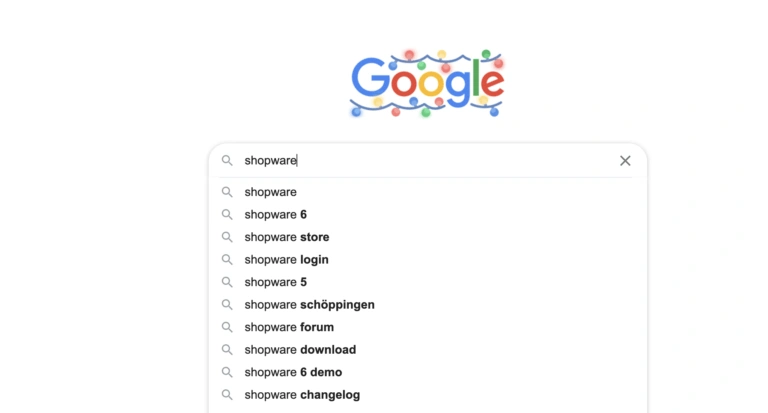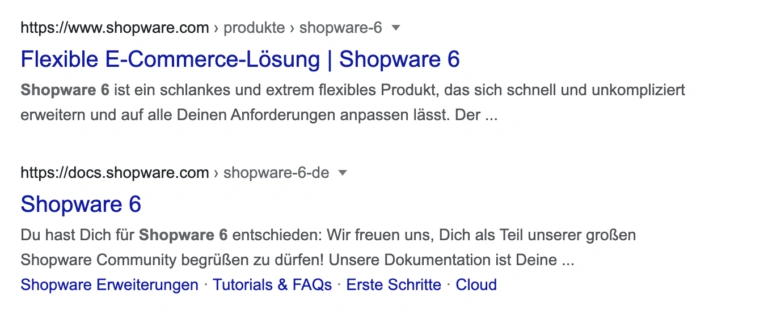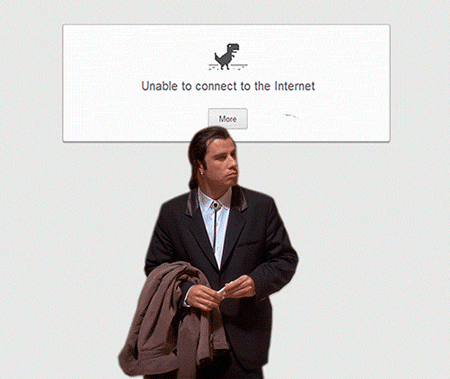SEO&SEM for Shopware: What Matters?
You have a Shopware store and want potential customers to find it? You'll have to work for that, because you're very likely not the only business operating in your industry. This article will shed some light on how to conduct some essential online marketing in terms of organic and paid efforts.
What is SEO and how does it help my shop?
SEO abbreviates Search Engine Optimisation. This means that there are certain things you can do so your website will rank well/better than your competitors. Some of them are pretty obvious. Others might seem obvious, but are not allowed; i.e. keyword stuffing. Some folks might think that using a certain keyword every 5 words will make their article rank really well. However, this is called keyword stuffing and something Google does penalise. A certain keyword density should be given. Meaning that the keyword should be mentioned, but not too often. A good rule of thumb is to use it in a natural manner. 
Content will definitely help you
In addition, it is also a good idea to produce content and write unique copy for your articles and blog. Content comes in many different shapes and forms. It can be written content, but also a graphic (i.e. an infographic), or a video that you will upload on your website/YouTube/Facebook/TikTok/Instagram. Content can have different goals. It can teach viewers something they did not know prior. It would thus be educational. It can also entertain them, by telling a good and/or funny story. Naturally, it can also advertise your product(s). However even in marketing, you should do much more than just tell people to buy your goods. Instead try to show them how much you know about a certain topic by explaining them how an item works or providing information that your competitors don't but would be interesting for potential customers/your target audience. Overall, when you compose content, please make sure to always do so with your target audience in mind. Depending on what you're selling in your shop, you might also have different target audiences that you want to attract. That is totally fine, but try to segment your content carefully to a particular audience.
Work with appropriate headlines
When you write an article, also work with sub-headlines. When doing so, make sure to use h2 headlines. There should only be one h1 and this will be the name of the article. Also, when you write an article, it is also a good idea to work with a few external links to reliable sources/websites. Doing so will also positively affect your ranking. By the way, titles that do contain a question tend to perform better. Try to also appeal to emotions in your headline; just make sure you don't overdo it.What else can you do in terms of SEO? Quite a few things! For instance looking at your on-page SEO efforts. This does include your meta titles and descriptions. They concern the information users see, when they search on Google. The search engine tends to take the text from your website. But by using meta titles and descriptions, you can affect what Google will show. 
Technical SEO matters
Of course there are also some technical aspects that should be taken into consideration. For instance how long your shop needs to load. Or how well it performs on mobile devices. These days, most websites are visited from mobile rather than desktop devices.
Avoid dead links in your shop
Dead links should also be avoided. They can really hurt your overall rankings. What is a dead link? This term describes a link that has been moved. For instance due to a new CMS or because the subsite simply does not exist anymore. When such a change happens, it is important to implement a redirect. A search engine might still list that dead link. If it doesn't redirect properly, the dead link negatively impacts your shop's SEO prowess. How you can find a dead link? With Google's Search Console for instance. It is free to sign up and use. In addition to other data, this tool collection helps you to identify dead links. It is a good idea to check every few weeks if your links still work properly. Doing so will only take a few seconds, but does help you to maintain a clean site. Also, when you update your website (i.e. new subpages), it does make sense to submit a new sitemap through Google Webmaster Tools.
Page speed matters for your shop
What can you do to improve page speed? Quite a few things! For instance ensuring that your host is fast. Not all hosts have the same speed, so it does make sense to compare them. Also, if you are relying on third party scripts, try to use as few of them as possible. They tend to drag your website's loading speed down as well. Same goes for your website; make sure it is as small as possible.Did you know that you can also optimise your images? Especially your image name and the alt text are important. When you upload an image, make sure that it does have a descriptive name and correct/appropriate alt text. This is important for Google's bots, as well as for visually impaired Internet users.Also, you should definitely avoid cloaking. Cloaking describes a technique whereby different content will be shown to actual users and search engines. However, search engines are able to understand cloaking techniques. When they discover that a website tries to cheat them by applying cloaking techniques, it will lead to severe penalties.
Off-Page SEO is also important
We have covered quite some examples regarding on-page SEO, so let's also take a look at what can be done off-page. One very important factor would be external links. Yet, not all external links are created equal. Search engines look at a domain level authority, meaning how important is a website that links to another one. A website like Wikipedia can be very important. However, it is hard to obtain a Wikipedia link and the Wiki-community does pay attention to attempts at tricking Wikipedia into providing a link. One way to get good external links is providing quality content. It does take time to research and compose a good article. But in many instances, doing so does pay off. You can always research what other people have written and make sure your article goes one or two steps further and provides in-depth, yet easily digestible content. If you write articles for some time, eventually, they will start to rank and people will refer to them. It can also make sense to find a niche and not just write about a topics that thousands of other people have already written about.Also, not every link is created equal. It helps to get new links every now and then. This signalises that your website and it content is still relevant; some content ages better than other content. You can also write an article about a company or person and let them know that you did so. This might result in said person/company linking to your article.
SEA for Shopware owners
Up until now, we have only talked about organic measures you can undertake. However, there is a whole other world that awaits you: paid marketing. Like everything, it does have advantages and disadvantages. Unlike SEO (at least if you do SEO yourself), SEA does cost money. Often even for every click. Yet, you can rank much faster than via SEO. Let's take Google Ads (formerly called Google AdWords). This is probably the best known SEA platform on the Internet. It offers different ways to advertise your goods. One of them is Google Shopping. This concerns the images you see that say Sponsored above them when you look for a keyword. It is pretty easy to get on Google that way. You sign up for Google Ads and then upload a data export sheet to Google. Google will then show those images to users. Google Ads mostly works on a CPC basis. CPC abbreviates Cost per Click; meaning every time someone clicks on your ad, you will be charged. Costs for such a click can vary widely. Sometimes, a click costs as little as 20-30 Cents, other times as much as 8-10 Euros/Dollars. The actual price depends on the quality of your ad account, the competition and the industry. Clicks on topics like finance and legal advice tend to be more expensive. But fear not, you can set up how much you are willing to pay per click, as well as per day. So there won't be any undesirable costs awaiting you at the end of the month.In addition to Google Shopping, there are further advertising options Google Ads offers. Among them you will find the regular ads that appear above the organic results. Those are a good option to test, so you can see how they perform with your target audience. In addition, you can also use display ads or advertise on YouTube. Whichever solution you choose, it is also helpful, to have Google Analytics installed. Doing so enables you to see which keywords keep users on your website for how long and end up resulting in a sale.In addition to Google Ads, there are a few other paid solutions. The most notable example is Facebook Ads, because it offers quite a few targeting options. So, if you decide to pursue SEA to boost your shop, do give Facebook Ads a try. Also, when using either paid solution, it can definitely be helpful to work with retargeting. Doing so will target users that have previously interacted with one of your ads.As you can see, there are quite a few options to increase visibility for your Shopware store. It often will take some time to find the right strategy that works for your shop. But given some patience and proper reflection, you will find the strategy that works for you.
Ready for your E-commerce success?
As Shopware agency, we help you create your high-turnover & individual online store and promote it with ads and SEO.
